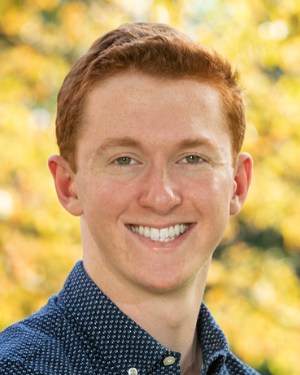After they graduate from high school, many National Honor Society (NHS) students continue to find incredible ways to serve their communities. One such student is Robert Wachen. In this blogpost, the NHS alum from Winston Churchill High School in Potomac, MD, and a sophomore at Harvard University, shares his experience developing a website to support high school students through their college application process.
I’ve been working with Amanda Thomsen, a sophomore at the University of Arkansas and an NHS alum, to build a free college application productivity tool for high school students. We’re excited to announce that our tool, Mission: Mentor, is now open to the public at missionmentor.org.
Awareness is one of the biggest drivers of inequality, and college admissions is a particularly opaque process. Of the hundreds of high school students we talked with in developing this website, we found that 78% of them missed a life-changing opportunity because they discovered it past the deadline. You can’t win a scholarship that you don’t know exists. Also, we found that 93% of students felt lost while preparing for college. The question that many students want to know the answer to is this: “What should I do, when?”
Many public schools start preparing students for college applications in their junior year. But admissions consultants, hired by affluent families to help their children through the admissions process, encourage students to start building their profile as early as middle school. So, it’s not surprising that a lack of awareness when it comes to preparation for college admissions disproportionately affects students from under-resourced communities lacking the infrastructure and community support to help students start preparing for college admissions early.
To help them, Amanda and I are taking the tips that we used to get full-ride scholarships to Harvard and the University of Arkansas and packaging them into a step-by-step, Gen-Z-optimized plan for students. In our own college admissions process, we spent countless hours building lists and planning our applications, and it was unnecessarily stressful. We wanted to simplify the process and make it less stressful for future college students. And we aimed to show students creative ways we’ve seen our colleagues develop their extracurricular activities, build a personal story, and also look good for college (rather than in the reverse order).
Our website started with a simple, college admissions guide and a database of scholarships and programs we compiled during our own college application process. Students flooded the platform, and we expanded our resources, working with admissions experts and college access foundations. Our website now matches students with over $10 billion worth of scholarships and hundreds of summer programs based on students’ extracurriculars, demographics, regions, and more. Through our site, students have been able to fund their college education and explore their interests. For example, thanks to our site, one student is now participating in a new regional dance program, and another received a full ride to Stanford as a QuestBridge Scholar.
Throughout the past college admissions cycle, we’ve held a closed beta testing of our site with thousands of students and have received hundreds of life-changing testimonials. Students have thanked us for building “honestly the most hopeful college resource I’ve ever found” and “a great way to organize all the scattered, varying, and chaotic information you hear about college.” Families have thanked us for “providing the type of guidance that people spend thousands of dollars for” and “leveling the playing field for families hit hard by the pandemic that cannot afford to spend several thousands of dollars on the same tools and advice you’ve generously provided to everyone for free.”
Students often reach out to us asking how to develop a great college application. Five years ago, my answer would have been to get an awesome SAT score and a high GPA. Given the recent changes in the admissions landscape (e.g., the advent of test-optional policies), I believe that now, more than ever, the best way to develop your college application is to develop yourself as a person.
While building Mission: Mentor, I’ve talked with so many students who have engaged in extracurricular projects they’re passionate about, just for fun. These projects often end up being great stories for an essay, but more importantly, they make the students much more interesting people. In my weekly virtual office hours that I hold at the site, I often tell students that if an acceptance letter is what they focus on, they’ll miss the point of high school. The winners in college admissions are the students who emerge with an intense passion for something and understand the role of college in pursuing that passion.
We want to help students hone that passion and find the right college to help them pursue it. As we continue to refine our website and develop an app for it, we’re focusing more and more on self-development and personal exploration. We’re excited to equip students with a plan not just for college, but for life. We’ve had the privilege of helping thousands of students already, and we can’t wait to work with many more.

